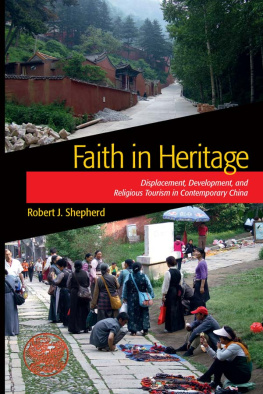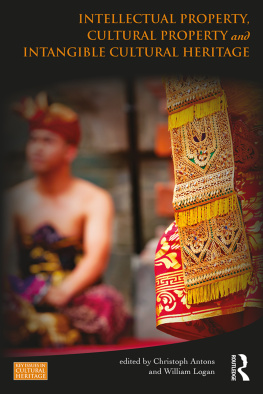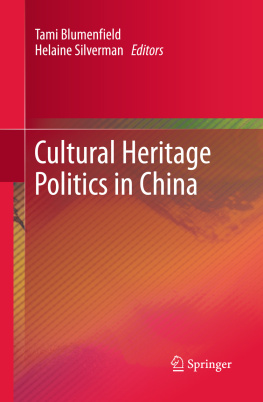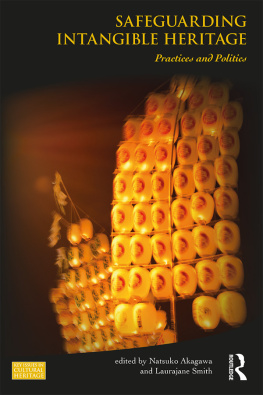Intangible Cultural Heritage in Contemporary China
This edited book examines the significance of intangible cultural heritage to local communities and the state in Hong Kong and China. Through ethnographic studies, the various chapters in this edited book argue for the role of the local community in the creation and conservation of the intangible cultural heritage and traditions. Irrespective of whether they are selected and listed as regional, national or UNESCO intangible cultural heritage, they are part of the living traditions unique to that particular local community.
This edited book argues that there are threefold significance of intangible cultural heritage to the local community and the state. First, intangible cultural heritage is seen as a social prestige. Second, it acts as socio-cultural and economic capital for members of the community to tap into to ensure socio-cultural and economic sustainability of the community. Finally, the intangible cultural heritage serves as a depository of the collective memories of the community, linking the past to the present and the future.
Khun Eng Kuah is Professor and Head of the School of Arts and Social Sciences, and Co-director of the Global Asia in the 21st Century (GA21) Research Platform, Monash University Malaysia.
Zhaohui Liu is Deputy Director of the Institute of Anthropology and Associate Professor at the Department of Sociology, Zhejiang University, China.
Routledge Contemporary China Series
For a full list of titles in this series, please visit www.routledge.com
152 Chinese Muslims and the Global Ummah
Islamic revival and ethnic identity among the Hui of Qinghai Province
Alexander Blair Stewart
153 State Propaganda in Chinas Entertainment Industry
Shenshen Cai
154 Assessing the Balance of Power in Central-Local Relations in China
Edited by John Donaldson
155 Television Regulation and Media Policy in China
Yik Chan Chin
156 Space, Politics, and Cultural Representation in Modern China
Cartographies of revolution
Enhua Zhang
157 The Occupy Movement in Hong Kong
Sustaining decentralised protest
Yongshun Cai
158 The Chinese Family Today
Edited by Xu Anqi, John DeFrain, and Liu Wenrong
159 Television Drama in Contemporary China
Political, social and cultural phenomena
Shenshen Cai
160 Intangible Cultural Heritage in Contemporary China
The participation of local communities
Edited by Khun Eng Kuah and Zhaohui Liu
First published 2017
by Routledge
2 Park Square, Milton Park, Abingdon, Oxon OX14 4RN
and by Routledge
711 Third Avenue, New York, NY 10017
Routledge is an imprint of the Taylor & Francis Group, an informa business
2017 selection and editorial matter, Khun Eng Kuah and Zhaohui Liu; individual chapters, the contributors
The right of Khun Eng Kuah and Zhaohui Liu to be identified as the authors of the editorial material, and of the authors for their individual chapters, has been asserted in accordance with sections 77 and 78 of the Copyright, Designs and Patents Act 1988.
All rights reserved. No part of this book may be reprinted or reproduced or utilised in any form or by any electronic, mechanical, or other means, now known or hereafter invented, including photocopying and recording, or in any information storage or retrieval system, without permission in writing from the publishers.
Trademark notice: Product or corporate names may be trademarks or registered trademarks, and are used only for identification and explanation without intent to infringe.
British Library Cataloguing in Publication Data
A catalogue record for this book is available from the British Library
Library of Congress Cataloging in Publication Data
A catalog record for this book has been requested
ISBN: 978-1-138-64418-2 (hbk)
ISBN: 978-1-315-62897-4 (ebk)
Typeset in Galliard
by Apex CoVantage, LLC
Elements of cultural heritage, both tangible and especially intangible, are important representations of a community and their way of life. All communities develop and their members engage in cultural and ritual performances. Over time, they become the cultural traditions that bind the individuals to their community and the community expresses its identity through these performances. Intangible cultural heritage encompasses expressions and is imbued with great symbolism that reflects on the uniqueness of the community. It is this that sets the community apart from others.
In the modern world, elements of intangible cultural heritage have been sacrificed in the name of modernity. They are fast disappearing both voluntarily and involuntarily. We want to draw attention to the fact that the intangible cultural heritage is fast disappearing not because it is subjected to the onslaught of modernity alone. It is fast disappearing because neoliberal capitalism has penetrated deep and fast into our community, and the collusion between the state and the big capitalists has decimated this cultural heritage. With the rise of consciousness of the community, there is now a movement to protect, conserve, and preserve some of the remaining heritage. It is imperative that the local communities become the active agents for the conservation and preservation of their own cultural heritage.
As individuals and academics within the community, we have a moral duty and obligation to bring attention to this disappearing culture and heritage for not only our present generation but also for the future generations who will have the opportunity to experience their own cultural heritage as well as those of other communities. In this global world, we should help to raise the visibility of local voices, to protect and celebrate the diversity of the intangible cultural heritage of the worlds communities. Through exploring the intangible cultural heritage in contemporary China and Hong Kong, in this edited book, we aim to do just this.
Work on this edited book has been a long process. We are grateful to the authors for their contributions. They have been most understanding in taking on board the comments for revision and reworking their chapters. We would also like to thank them for their patience. We are also grateful to the anonymous reviewers who have provided us with constructive comments that enabled the authors to revise and perfect their chapters. We are most grateful to Simon Bates of Routledge for his support and faith in this project and his team for the editorial help that brings this book to fruition.
KKE and LZH, April 2016
Jung-a Chang is Professor of Chinese language and cultural studies, Director of the Institute for Chinese and Overseas Chinese Culture, and Vice President of the Academy of Chinese Studies at Incheon National University. She received her Ph.D. from Seoul National University. She is currently leading a research project on Chinese socio-cultural and economic practices. She conducted fieldwork in Hebei, Zhejiang, and Yunnan Provinces in mainland China and Hong Kong. She has co-authored a number of books including Beyond the Myths of Ethnicity . Her research interests include cultural nationalism and citizenship. E-mail: jachang@inu.ac.kr.






